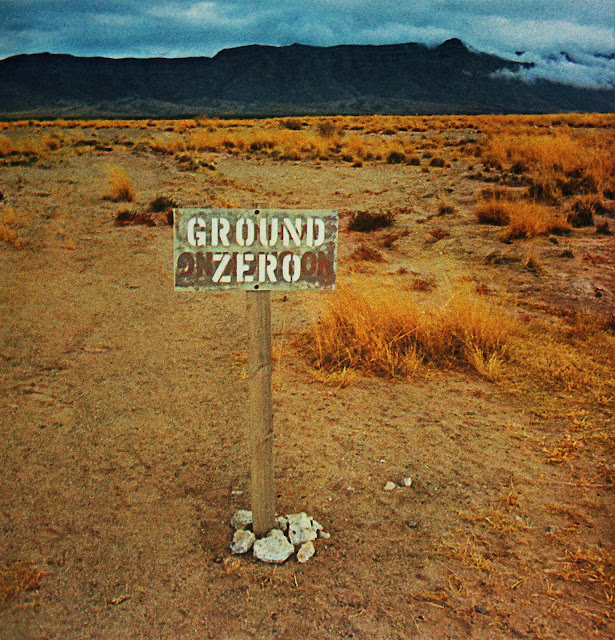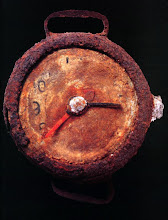Nature and the human: mythical poles of an actual dialectic, a process of metabolic exchange that is neither natural nor entirely social.
Adorno, stimulated by Benjamin as well as Marx, tried to work out the forms and variations of this dialectic under the paradoxical heading of "natural history." Today they bear down with bitter clarity.
Nature is the material rock bottom of mortal bodies in cycling flux: the ceaseless conversion of matter and energy that is both the astonishing beauty of bonding webs and the liquidating sublimity of death's heads.
History - the idea, produced in time, of freedom - promises escape from nature as blind fate: human reason begins as protest against imposed structural impotence.
But what reason rescues from domination by nature is rapidly converted into new domination over nature and people: freedom is taken hostage by power.
History, stuck in domination, renounces liberation: not yet historical, not nearly rational enough, the social process remains naturalized, the reproduction of mythical second nature.
As global social process, capital gives specific form to reason, science, technology, power, the state: the valorization-accumulation process produces and reproduces the order of exploitation, enforced by state terror and weapons of mass destruction -- a dynamic of domination that escapes rational control.
Moreover, the social form of mortal human bodies impacts the forms and tempos of metabolic flux: society changes nature.
Class domination of man by man and the rape and plunder of nature are a single global process, escaping reason on planetary scale: under the rule of accumulation, ecological degradation accumulates to the point of looming biospheric meltdown.
But this second nature is not natural: neither invariable nor inescapable, it is the mirage of fate spreading before a relentless and gripping social process that could be otherwise.
The abundance that reason and the power of production dangles in view but does not deliver is the actual possibility of reconciliation between humanity and nature, as well as between humanity and itself: the liberation of inner and outer nature.
However, emancipating transformation of the social process remains the only pathway to such liberation: a history that would break with capitalism's "ever changing production of the always-the-same."
In the unbroken persistence of domination, the promised progress in freedom and happiness remains blocked.
But now accumulation recoils, threatening the conditions of life as such: under capitalist modernity, leaping development overleaps itself, and becomes terminal.
The process is open - meaning: no outcome is pre-given or automatic.
But: time itself is a limiting constraint. We will not have forever to find the passage beyond capital, domination and terminal ruin.
A century ago, these theses were mere science fiction; now they are urgency itself.
Nature and history (or: the human), then, are inseparable non-identities: each conditions and mediates the other in actual process, just as each conceptually de-mythifies the other by continuous specific negation.
They are, as Susan Buck-Morss puts it, "mutual, non-identical mediators." In constellation with other concrete dialectical couples (individual/society, subject/object, particular/universal), they form the tensional matrix of possible practice.
The radical embodiment of negative dialectics would be the revolutionary practice Adorno's thinking reached but did not become. We are still in that "would be."
GR












No comments:
Post a Comment